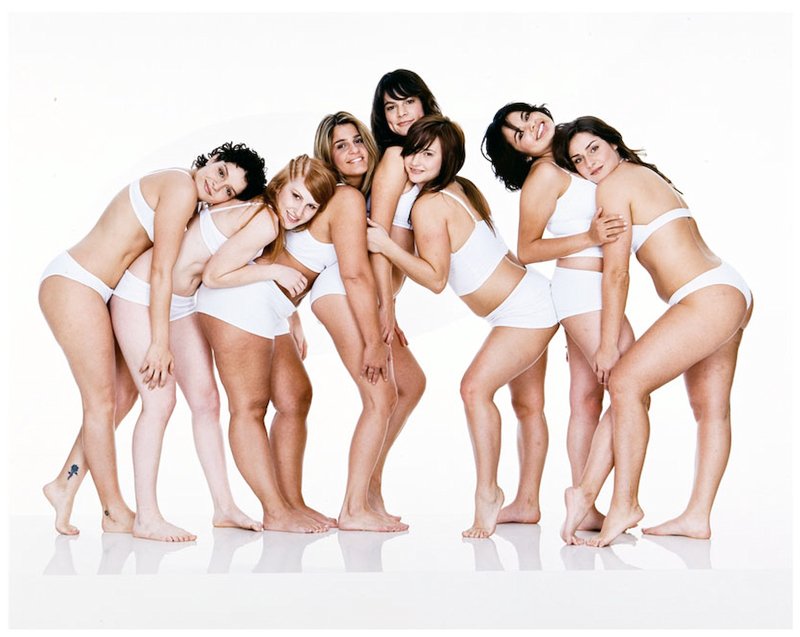Dove Campaign For Real Beauty
We live in a world of images and icons. This is true, whether you like it or not. Many of these images are modified to sell a certain idea, or an ideal look. Much ink, digital or otherwise, has been spilled over the effects of over-glamorizing the female form, and the media's responsibility in the creation of an unattainable societal norm, and expectation around beauty. It is easy to argue that this is a bad thing, but what if a brand could help turn that around? What if a brand created a campaign that glamourized real women? Well, it appears that Dove has done it with their Campaign for Real Beauty, but what if I told you that it's bullshit — just smoke and mirrors?
First of all, I have to say that from an advertising standpoint, Dove has done something truly exceptional here. The Real Beauty campaign is evocative, emotional, and personal. The imagery is actually shocking in some ways. We've become so used to seeing these airbrushed beauty sensations in advertisements, that to see "real" people is actually in stark contrast to the contrary. Of course women are going to relate to this brand, maybe even flock to it. Dove is the good gal in a fight against the unnecessary evils of the fake and demonic airbrushed bimbo army. Genius, pure genius.
I've spoken with many people, and I've even had this discussion while guest speaking in first and second year business classes, but accepting Dove at face value is naive at best, but the reality is that most of the people I have spoken with do — without question — accept this. Most of the times I've had this discussion, people say that they love the Dove campaign, and that it is refreshing; a nice change if you will. I can't argue with that either.
I'll show images from the Dove campaign, and then juxtapose them with images from an Axe campaign. Hands down, even the men in the room choose the Dove images as being more likeable — every time. It is just not cool to like Axe and their somewhat misogynist advertisements past the age of say, 18 years old.
So here is where the true critical thinking dilemma comes into play. Dove, with its curvaceously unfiltered women; and Axe, with its bikini clad hussy parade; are both — wait for it — owned by the same company: Unilever (a massive corporation also responsible for the likes of Hellman's Mayonnaise, Vaseline, Vegemite, Axe, and Dove).
If you didn't know this, and feel somewhat duped, you really shouldn't feel bad because most people never will. There is a second layer of critical thinking required when it comes to advertising and media, and it is simply a bit exhausting to go through life analyzing everything like this. Brands will always exist, and will always advertise — this will never change.
What does need to change is how we collectively think about advertisements and media as a whole. There is good to be done through advertising, and there are good brands out there, doing good things. Some of them are even "big evil brands."
I won't dispute that big evil brands can do big things for the world in positive ways, nor do I think success and becoming a big brand is inherently a measure of "selling out."
What I do think is that there is an opportunity these days for a greater understanding and evaluation of messaging in the media. There is a chance to communicate, and even fight back. Nowadays, the voice of the collective is actually bigger than the voice of the "big evil brand," and you have access to that voice right at your fingertips.
My opinion on all of this, is simply my opinion. I have worked on projects for the Axe brand over the years. I have found it entertaining and fun, as do I hold their advertising in much the same regard. I also love the Dove campaign for what it is.
Do I feel that both are somewhat manipulative? Absolutely.
Hypocritical on Unilever's part? Yes.
Am I going to start a riot? No.
We live in an ad-heavy culture, and are constantly being advertised to in more ways than most of us are even aware of, that won't change, nor will most of us (myself included) run out and buy gluten free, organic soap, made with recycled vegetable byproducts from the hippie lady at the farmer's market.
What does need to change however, is our understanding of media and advertising culture. We need to look at things more critically, and decide from there who we are going to support, whether they be big evil brands or otherwise.
Despite Dove being part of the same group that owns Axe, buying Dove is still like casting a vote, or declaring a preference. If the support for this type of imagery becomes unanimous, it will carry a positive effect. Until then, companies like Unilever will continue supporting both sides of the battle by hedging their bets. As a big company, why wouldn't they profit from both sides?
If there is any message here, it is too see the forest for the trees if you will, and to think about the messages in the media around you before making a decision. Know that everyone is selling you something — maybe an idea, or a product, but the choices you make impact those ideas.
Advertising it's everywhere, and it is all just smoke and mirrors, just make sure you know who and what you are looking at.
https://www.youtube.com/watch?v=XpaOjMXyJGk
https://www.youtube.com/watch?v=m0JF4QxPpvM






